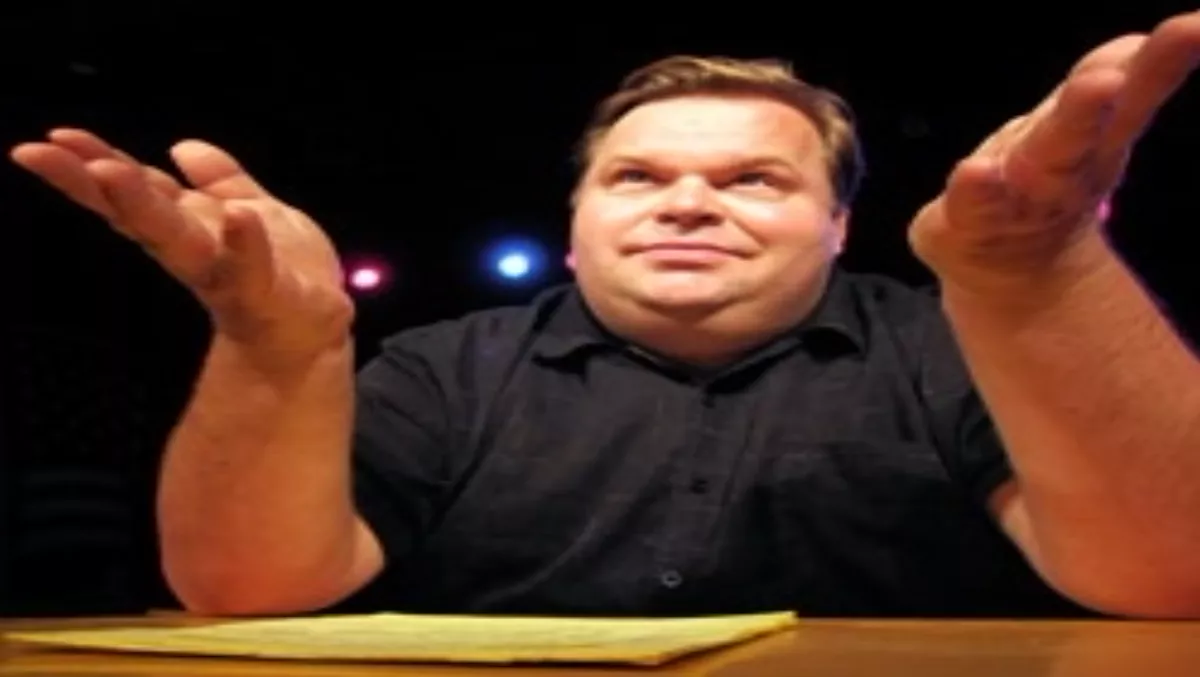
Apple detractor admits fabrications
One of Apple's strongest detractors has admitted fabricating details in a stage play about worker conditions in the Chinese factories at which many of the company's products are made.
Since 2010, performer Mike Daisey has been touring a one-man show called The Agony and the Ecstasy of Steve Jobs, which is about globalisation and industrialisation and includes tales of a visit by Daisey to a Foxconn factory. At points during the show Daisey tells of meeting workers as young as 12, as well as workers poisoned by a chemical called n-hexane.
The play has been part of a growing wave of dissent questioning the labour practices at Apple's factories. In January the company responded by publishing the results of its most recent supplier responsibility audit, as well as a near-complete list of its suppliers.
At the same time, Daisey was taking his work to its biggest stage yet, with the documentary radio show This American Life airing an excerpt. The episode became the most downloaded in the show's history.
However, the show's popularity drew the attention of other journalists who had visited the factories, with one in particular, Marketplace's Rob Schmitz, tracking down the translator who travelled with Daisey during his visit to verify some of his claims.
The translator, Cathy Lee, repeatedly denied many of the claims made by Daisey, including meeting underage workers and workers suffering from n-hexane poisoning.
"I pressed Cathy to confirm other key details that Daisey reported," Schmitz writes.
"Did the guards have guns when you came here with Mike Daisey? With each question I got the same answer from Lee. 'No', or 'this is not true'.
When confronted with this evidence, Daisey admitted the meetings never actually took place. He has since posted a blog entry explaining that the show was a theatrical piece 'whose goal is to create a human connection between our gorgeous devices and the brutal circumstances from which they emerge'.
"What I do is not journalism," Daisey says.
"The tools of the theatre are not the same as the tools of journalism. For this reason, I regret that I allowed This American Life to air an excerpt from my monologue.
"This American life is essentially a journalistic – not a theatrical – enterprise, and as such it operates under a different set of rules and expectations. But this is my only regret.
This American Life published a shame-faced retraction of the show, host Ira Glass saying he was 'horrified' to have aired the segment.
"Daisey lied to me and to This American Life producer Brian Reed during the fact checking we did on the story, before it was broadcast. That doesn't excuse the fact that we never should've put this on the air. In the end, this was our mistake.
Commentators have differed in their responses to these events, with some claiming Daisey 'should be ashamed of himself' and others saying he did what he had to do to get the story told, as did the makers of the Kony 2012 documentary.
TechCrunch contributor John Biggs writes, "To feel schadenfreude at Daisey's fall is wrong. I will instead remind you that most of what he said was, technically, true.
"While his story may have been a fabrication, his mission to help the oppressed was a good one, and a true one. We can learn from his example, at least in terms of consuming less and reducing our endless neophilia.
What do you make of the story – did Daisey cross the line, or was he just doing what he had to do?

